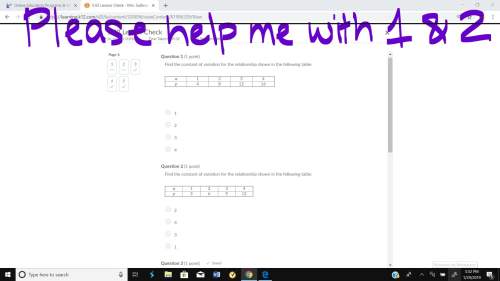
Mathematics, 20.09.2020 18:01 kyrabrown33
Which of the following equations have infinitely many solutions? Choose all answers that apply: Choose all answers that apply: (Choice A, Checked) A x-37=x-37x−37=x−37x, minus, 37, equals, x, minus, 37 (Choice B) B 73x-37=73x-3773x−37=73x−3773, x, minus, 37, equals, 73, x, minus, 37 (Choice C) C 37x-37=37x-3737x−37=37x−3737, x, minus, 37, equals, 37, x, minus, 37 (Choice D) D 74x-37=74x-3774x−37=74x−37

Answers: 1


Other questions on the subject: Mathematics

Mathematics, 21.06.2019 16:10, zayzay162
A) if $50000 is invested in a bank account that pays 9.3% of interest compounded on a six-monthly basis, how much money will be in the account after 3 and 12 years? b) if matusalen's father had put $2.0 in the bank when he was born and there, how long would matusalen have had to his death (969 years later) if the interest was 7% per year composed each month and weekly?
Answers: 1

Mathematics, 21.06.2019 18:30, princessbri02
Which of the following is the result of expanding
Answers: 2

Mathematics, 21.06.2019 22:30, clickbaitdxl
Pls never taught i’m really confused and i rlly need
Answers: 1
You know the right answer?
Which of the following equations have infinitely many solutions? Choose all answers that apply: Choo...
Questions in other subjects:













